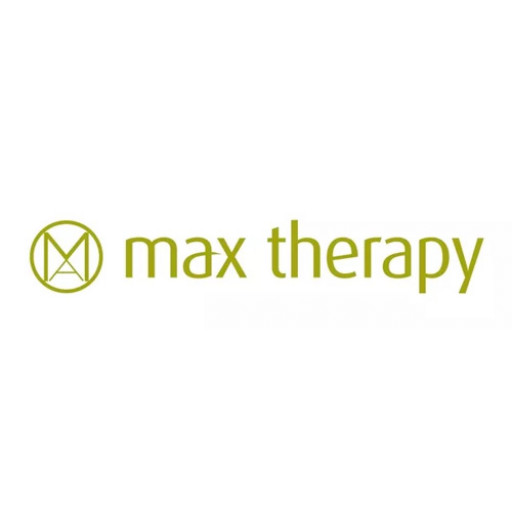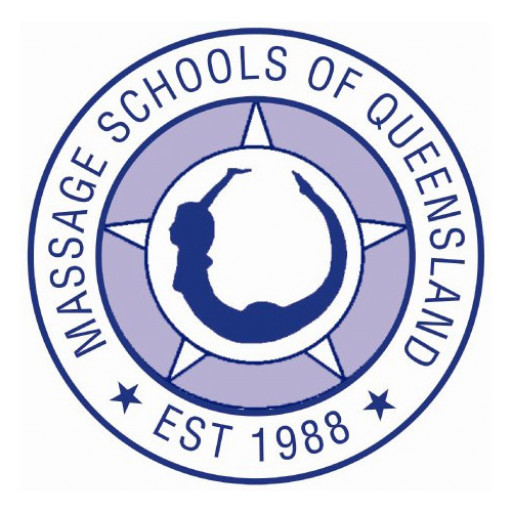Photos of university / #oxford_uni
Enhanced Cognitive Behavioural Therapy (CBT) is a rigorous and comprehensive professional training programme offered by the University of Oxford, designed for mental health practitioners seeking to deepen their expertise in cognitive-behavioural approaches. This postgraduate qualification provides a profound understanding of the theoretical foundations and practical applications of CBT, equipping participants with advanced skills to deliver effective therapeutic interventions across a wide range of mental health conditions. The programme combines cutting-edge academic research with clinical practice, ensuring that students are well-prepared to address complex mental health challenges in diverse settings. Participants will engage with core topics such as the cognitive model, behavioural techniques, therapeutic alliances, and strategies for managing difficult cases. The curriculum encompasses evidence-based treatment protocols for disorders including depression, anxiety, obsessive-compulsive disorder, post-traumatic stress disorder, and more. Delivered through a blend of face-to-face workshops, supervised clinical practice, and online learning modules, the programme offers flexibility to accommodate working professionals. Throughout the course, students will benefit from the expertise of renowned faculty members who are active researchers and clinical practitioners in the field of CBT. The programme emphasizes experiential learning, encouraging practitioners to reflect on their clinical work and incorporate latest research findings into their practice. Upon successful completion, graduates will receive a recognised qualification that enhances their clinical skills, broadens their professional opportunities, and allows them to contribute more effectively to evidence-based mental health care. The University of Oxford's reputation for academic excellence and its commitment to mental health innovation ensure that participants will be part of a vibrant academic community dedicated to improving mental health outcomes worldwide.
The course structure will vary according to the specialist pathway chosen. Reading and completion of written assignments will be undertaken in addition to the teaching days. Many students find it effective to set aside at least six to seven hours a week for private study.
Complex Presentations
This specialism seeks to enable students to add to their existing knowledge of cognitive behavioural therapy, models, concepts and methods specific to more complex mental health problems (eg eating disorders, psychosis, complex trauma), and models employed in the treatment of personality disorder, severe mental illness and cases with a high degree of comorbidity, and to establish and practise a repertoire of cognitive behavioural skills for use with complex presentations.
Students are expected to carry out CBT with at least three suitable patients during the course and receive two hours of small group supervision on a bi-weekly basis.
The course begins with a four-day induction block and then bi-weekly training workshops on Thursdays and Fridays.
Psychological Trauma
This innovative programme is designed to offer in depth training and supervision in Cognitive Behavioural Therapy for traumatised populations. It offers comprehensive training in CBT for traumatised populations with a strong grounding in current theories and the up to date evidence base.
Sixteen days of training are spread over an academic year in intensive four day teaching blocks and students are expected to complete Trauma focused CBT with at least two patients over the duration of the course.
Psychosis and Bipolar
This specialism seeks to enable students to develop a sound understanding of cognitive behavioural models of psychosis and the related evidence base; competence in engaging, assessing and developing collaborative formulations with individuals with psychotic and bipolar illness; and competence to deliver high quality, individualised, evidence-based interventions in accordance with NICE guidance and the competence framework for work with people with psychosis and bipolar disorder (Roth & Pilling 2013).
The course comprises teaching over three terms. Term I starts with a four-day teaching block in October and is followed by one full-day per fortnight (Thursday) during November, and a two-day teaching block in December. The second two terms comprise of one full-day per fortnight (Thursday) over Hilary and Trinity Terms.
Supervision and Training
This specialism explicitly aims to prepare students to teach and supervise CBT. The emphasis is on acquiring, practising and communicating specialised dissemination skills, within an explicit theoretical framework in relation to associated empirical research.
Students are normally expected to carry out CBT supervision in at least three supervision settings over the course and to present at least one training event.
The course comprises 18 days, presented in five teaching blocks. It begins with a four-day induction, followed by further 3-day or 4-day blocks. Formal teaching comprises full or half-day workshops as a half-day Practice of Supervision (PoS) session is regularly integrated into the course.
Course assessment
Summative assessment requirements vary according to the specialism chosen.
Complex Presentations
- Two clinical recordings;
- Two case reports of not more than 4000 words.
Psychological Trauma
- One assignment of not more than 2,000 words demonstrating knowledge of CBT theory;
- One clinical recording;
- One clinical assessment report of not more than 2,000 words;
- One case report of not more than 6,000 words.
Psychosis and Bipolar
- A research presentation of up to 20 minutes duration based on the theoretical content;
- One clinical recording;
- One case report of not more than 6,000 words;
- One case presentation of up to 15 minutes duration.
Supervision and Training
- One assignment of not more than 2,000 words demonstrating knowledge of supervision and training theory;
- One video recording of supervisory practice and supervision critique of not more than 2,000 words;
- One training report of not more than 4,000 words.
Applicants are normally expected to be predicted or have achieved a first-class or strong upper second-class undergraduate degree with honours (or equivalent international qualifications), as a minimum, in a relevant subject.
For applicants with a degree from the USA, the minimum GPA sought is 3.5 out of 4.0.
Applicants are also normally expected to:
- be qualified members of one of the main National Health Service professions, eg clinical psychologists, psychiatrists, nurses, general practitioners, occupational therapists, or other recognised professions, eg social worker; and
- have at least one year's post-qualification clinical experience
- have completed an OCTC/University of Oxford Postgraduate Certificate in Cognitive Behavioural Therapy or equivalent high-intensity CBT training
No Graduate Record Examination (GRE) or GMAT scores are sought.
If you hold non-UK qualifications and wish to check how your qualifications match these requirements, you can contact the National Recognition Information Centre for the United Kingdom (UK NARIC).
- Official transcript(s)
- CV/résumé
- Statement of purpose: 500 words
- References/letters of recommendation:Three overall, generally academic
ENGLISH LANGUAGE REQUIREMENTS
Higher level
|
Test |
Standard level scores |
Higher level scores |
||
|
IELTS Academic |
7.0 | Minimum 6.5 per component | 7.5 | Minimum 7.0 per component |
|
TOEFL iBT |
100 |
Minimum component scores:
|
110 |
Minimum component scores:
|
| Cambridge Certificate of Proficiency in English (CPE) | 185 |
Minimum 176 per component |
191 |
Minimum 185 per component |
| Cambridge Certificate of Advanced English (CAE) | 185 |
Minimum 176 per component |
191 |
Minimum 185 per component |
The University of Oxford offers a range of financing options to support students enrolled in the Enhanced Cognitive Behavioural Therapy programme. Funding opportunities include scholarships, bursaries, studentships, and financial aid designed to assist both domestic and international students in managing the costs associated with postgraduate study. Scholarships are often awarded based on academic excellence, merit, or need, and applicants are encouraged to explore specific eligibility criteria and application procedures through the university’s official funding pages. Bursaries may provide targeted financial support for particular student groups, such as those from underrepresented backgrounds or low-income households. Students are also encouraged to seek external funding sources, including government grants, health service funding, and charitable organizations that support mental health training and professional development. The university offers guidance and resources to help prospective and current students navigate the complex landscape of financial planning for postgraduate education. Payment plans and tuition fee installments are available to facilitate manageable financial arrangements across the duration of the programme. Additionally, students working in relevant health-related fields may have access to employer sponsorships or repayment schemes designed to encourage continued professional development within the National Health Service or other healthcare providers. International students should investigate any country-specific funding opportunities or scholarships that could contribute towards their study costs. It is important for applicants to review the detailed financial information on the university’s official website and consult with the university’s financial aid advisors for personalized advice and support. The university is committed to making postgraduate education accessible and affordable, aiming to reduce financial barriers and support student success in completing their enhanced training in cognitive behavioural therapy.
Enhanced Cognitive Behavioural Therapy (CBT) at the University of Oxford is a specialized postgraduate program designed to provide advanced training in evidence-based psychological treatment methods. This course aims to equip mental health professionals with the necessary skills to deliver high-quality CBT interventions for various mental health conditions, including anxiety disorders, depression, and other psychological issues. The program combines rigorous academic coursework with practical clinical experiences, ensuring that graduates are competent and confident in applying therapeutic techniques in diverse settings.
Students enrolled in this program benefit from the expertise of leading clinicians and researchers affiliated with the University of Oxford. The curriculum covers core concepts of cognitive-behavioural theories, evidence-based assessment methods, treatment planning, and customized intervention strategies. Special emphasis is given to current developments in the field, including third-wave CBT approaches like Acceptance and Commitment Therapy (ACT) and Mindfulness-Based Cognitive Therapy (MBCT). The course also explores recent research findings, integrating them into clinical practice to enhance efficacy and patient outcomes.
The program employs a blended learning methodology, combining online learning modules, in-person seminars, and supervised clinical placements. This format allows students to develop both theoretical knowledge and practical skills in a supportive environment. Clinical placements are typically arranged in collaboration with local healthcare providers and mental health organizations, giving students real-world experience under the supervision of experienced practitioners.
Admission requirements include a relevant undergraduate or postgraduate qualification in psychology, psychiatry, social work, nursing, or a related field, along with professional experience in mental health settings. The program is suitable for qualified mental health professionals seeking to specialize further or update their skills in adolescent and adult CBT.
Graduates of the Enhanced CBT program are equipped to work in a variety of settings, including NHS mental health services, private practices, and academic or research institutions. They are also prepared to contribute to ongoing research efforts and to develop innovative approaches to cognitive-behavioural therapy. The University of Oxford's reputation for academic excellence and clinical research ensures that students receive a high-caliber education, fostering both personal development and professional advancement.
The program typically spans one year full-time or part-time options, depending on the student's circumstances. Upon successful completion, students are awarded a formal qualification from the University of Oxford, recognized nationally and internationally for its academic rigor and clinical relevance. This qualification enhances career prospects by demonstrating a high level of expertise and commitment to excellence in mental health care.










